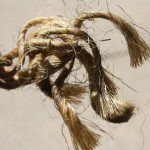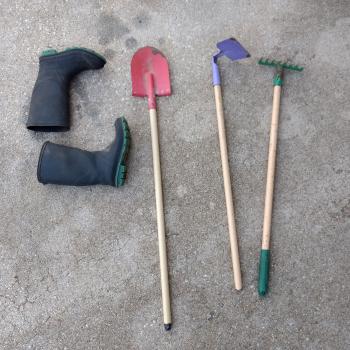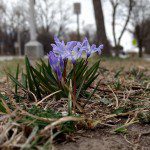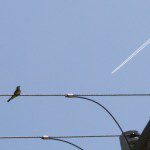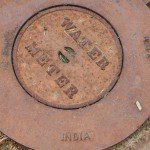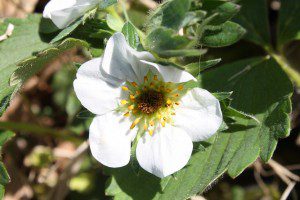 Neither the one who plants nor the one who waters is anything, but only God who gives the growth. (1 Corinthians 3:7)
Neither the one who plants nor the one who waters is anything, but only God who gives the growth. (1 Corinthians 3:7)
Gardening can be a spiritual discipline, the art of losing life and receiving life as a gift.
Think about it. We run the soil test and till out the weeds and pour over the seed catalogs. We stake and hoe and trench the humus. We tuck our seeds in for the spring.
And then amazingly: a hundredfold harvest, or sixty, or thirty. Salsa all around!
Or–
A frost. A swarm of spotted beetles. A soccer ball aimed just perfectly wrong. Disaster. Kiss that tomato goodbye.
I feel the tension between loss and gift most intensely in Spring. Poet T.S. Elliot wrote in his poem “The Waste Land,”
April is the cruellest month, breeding / Lillacs out of the dead land, mixing / Memory and desire, stirring / Dull roots with spring rain.
That sounds like April in our Kansas–rain, frost, and wind in an unpredictable sequence. (It snowed on Easter, people!) I pin a jumble of hopes on my Spring garden, all my winter longings for something green, something plucked from my dirt with my hands. April rattles my hopes.
Strawberries are the worst for me. They pop boldly open, embracing the sky and making out with honeybees. They’re confident and pure white. And then Jack Frost slips in–that thief. He doesn’t even unlatch the gate. Death crystallizes on my blooms, and the fertile yellow center goes dark.
If it’s not frost, it’s something else. A few years ago we watched our sweet corn ripen with lovely anticipation. Tomorrow shall be the day of the great harvest, we said. We’ll eat and freeze and savor.
But we awoke to our sweetcorn patch crumpled and torn. Cobs lay half-eaten, stalks broken off, strewn. It turns out that the neighborhood band of raccoons had been anticipating our corn too, and they were quicker on the draw. We almost cried.
I used to pray about these things. Lord, may the frost not descend. May the coons stick to crawdads this year. Honestly, I still pray, but it’s a little different. I’m beginning to recognize that the act of gardening is an exercise in losing life and receiving it as gift.
Loss isn’t easy. We avoid it. We resist vulnerability–and rightly so. But loss-avoidance does not the good life make. (This is why I dislike the modern blessing: Be safe! If safety were my top concern, I would stay in bed.) Writer Norman Wirzba asks how our aversion to loss might reflect our disinterest in gardening:
Could it be that our declining interest in gardening is rooted in our fear of failure and our impatience with loss? – Food and Faith: A theology of eating, p.51
To garden is to know loss. Gardening becomes a spiritual discipline when we realize that we’re enacting something bigger than our little cultivated square. Gardening is life practice, for to live is to know loss. Pastor Serene Jones says this: “To be human is to live only a hairbreadth away from the unbearable.” (Serene Jones, Trauma and Grace, p.18). Gardening truly means walking along that hairbreadth line in some small way. It’s an exercise in gracious vulnerability. And it turns out that gracious vulnerability is the starting point for the good and authentic life. We extend our arms open to God and to others. Jesus did something like that on the cross.
If we aren’t open to loss, we can’t be open to gift. To garden is to learn to receive life as a gift. There are so many stages. Everything has to come together in a raggedy perfection for seed + water + soil = feast. That swollen tomato is pure gift.
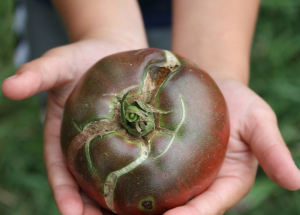
But what that matters isn’t a gift? What that matters doesn’t come from beyond us, from a place that’s deeper than us? What that matters doesn’t have roots in God?
In reality, it’s all gift or loss, a hairbreadth line running between them. It turns out that the courageous response is to walk that line in gratitude, awe, and praise. Plant, pray, and harvest. The courageous response is to live.

